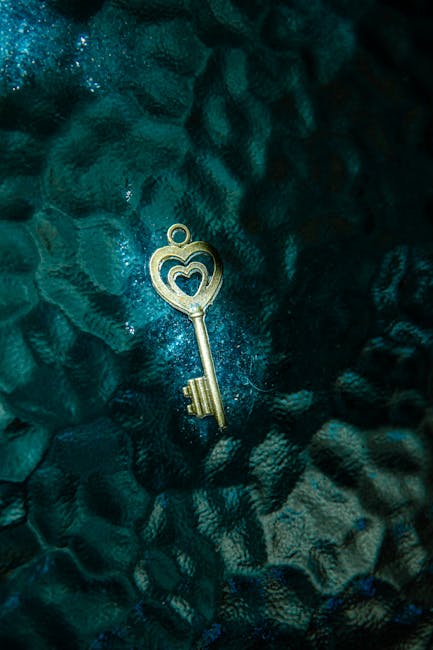Les PERSOS GENTILS Cheatés : Zenitsu, Shanks, Meliodas & L'Art des Héros Surpuissants

Les PERSOS GENTILS Cheatés : Zenitsu, Shanks, Meliodas & L'Art des Héros Surpuissants
Konnichiwa, anime lovers! Let's dive deep into a topic that's been swirling in the otaku-sphere: those unexpectedly overpowered (or, as the kids say, "cheatés") characters who, despite their gentle natures, pack an unbelievable punch. We're talking about the softies who could probably level entire cities if they felt like it – but usually choose not to. We'll be focusing on characters like Zenitsu from Demon Slayer, Shanks from One Piece, and Meliodas from Seven Deadly Sins. Think of it as an exploration of the design choices behind these characters: why create a powerful hero who seems, at first glance, anything but?
From a design perspective, these characters present a fascinating paradox. We're drawn to the underdog, the unassuming individual who overcomes tremendous obstacles. But when that underdog also wields god-like power, the narrative becomes even more compelling. It's a delicate balancing act – maintaining the relatability of a kind soul while showcasing awe-inspiring abilities. It's like finding the perfect harmony in a minimalist Japanese garden; understated elegance hiding profound depth.
Zenitsu Agatsuma: The Sleeping Thunder God

Ah, Zenitsu! Who would have guessed that this perpetually anxious, crying mess is actually a formidable demon slayer? Zenitsu's design is brilliant in its contrast. His bright yellow and orange haori, reminiscent of lightning, hints at his true potential, yet his constantly terrified expression completely subverts expectations. He's a masterclass in visual dissonance.
Here's why Zenitsu's "cheaté" nature works so well:
- The Underdog Appeal: We root for Zenitsu because he's vulnerable and relatable. His fear mirrors our own insecurities, making his moments of bravery even more impactful.
- The Shock Factor: The contrast between his personality and his power is genuinely surprising. It keeps us on the edge of our seats, wondering when his next burst of unconscious awesomeness will occur.
- The Unconscious Skill Trope: Zenitsu's power only manifests when he's asleep or unconscious. This adds an element of mystery and unpredictability, preventing him from becoming a predictable, overpowered character. It's a clever way to limit his abilities while still showcasing his incredible potential.
- The Design Language: Even his character design, with its vibrant yellow and sharp angles, subtly hints at the lightning-fast power he wields, even when he himself is unaware. It's visual storytelling at its finest.
Think of it like this: Zenitsu is like a beautifully crafted, minimalist tea set. At first glance, it appears simple and unassuming. But the quality of the materials and the precise craftsmanship reveal a hidden depth and sophistication. Just like Zenitsu's sleeping swordsmanship.
Shanks: The Charismatic Emperor

Shanks is the epitome of cool, calm, and collected…until you mess with his friends. He's the kind of guy you'd happily share a drink with, but you definitely wouldn't want to cross. His design is deceptively simple: a red-haired pirate with a missing arm and a friendly smile. But behind that easygoing exterior lies a Haki so powerful, it can shatter entire landscapes.
Why is Shanks a compelling "cheaté" character?
- The Mysterious Backstory: Shanks' past is shrouded in mystery. We know he was a member of the Roger Pirates, but the full extent of his abilities and his rise to Emperor status remains largely unknown. This ambiguity fuels speculation and adds to his mystique.
- The Presence: Shanks exudes an aura of power and authority that commands respect. Even without flashy displays of strength, his presence alone is enough to intimidate even the most seasoned pirates. It's the anime equivalent of "quiet confidence."
- The Selfless Motivation: Shanks uses his power to protect others and uphold his ideals. He's not driven by greed or personal ambition, but by a strong sense of justice and camaraderie. This makes him a truly admirable figure.
- The Controlled Power: Shanks rarely displays the full extent of his power unless absolutely necessary. This restraint makes his moments of action even more impactful. It's like a perfectly placed accent in a minimalist design – a subtle detail that amplifies the overall effect.
Shanks is like a perfectly aged sake. The appearance is deceptively simple, but the flavor is complex and refined. Every sip reveals new layers of depth and character, leaving you wanting more. He embodies the Japanese concept of "wabi-sabi," finding beauty in imperfection and understated strength.
Meliodas: The Demon Captain with a Heart of Gold

Meliodas, the captain of the Seven Deadly Sins, is the ultimate example of a "cheaté" character hiding in plain sight. His youthful appearance and playful demeanor mask a formidable demon power and a tragic past. He's the kind of guy who'll crack a joke one minute and unleash a devastating attack the next. His design, with his short stature and bright green eyes, reinforces this dichotomy.
What makes Meliodas such a captivating overpowered character?
- The Dual Nature: Meliodas is constantly battling his inner darkness. His demon heritage is a constant threat, forcing him to suppress his true power and maintain a cheerful facade. This internal conflict adds depth and complexity to his character.
- The Hidden Power: Meliodas' true power is suppressed until he reaches a certain emotional threshold. This allows for dramatic power-ups and explosive moments of action. It's like a pressure cooker, building tension until it finally explodes.
- The Tragic Backstory: Meliodas' past is filled with loss and suffering. He's lived for thousands of years, witnessing countless tragedies and enduring unimaginable pain. This backstory explains his stoicism and his unwavering commitment to protecting his friends.
- The Relatable Flaws: Despite his immense power, Meliodas has his flaws. He can be reckless, insensitive, and sometimes even downright annoying. These imperfections make him feel more human and relatable. He's not a perfect hero, but he's a hero nonetheless.
Meliodas is like a meticulously crafted bento box. Each compartment contains a different flavor and texture, creating a harmonious and satisfying whole. His character is a blend of comedy, tragedy, and action, all carefully balanced to create a truly memorable protagonist. He is the embodiment of finding strength in simplicity, a core tenant of Japanese design.
The Appeal of Gentle Giants: Why Do We Love These Characters?

So, what's the magic ingredient that makes these "cheaté" gentle giants so appealing? It's not just about the power fantasy – it's about something deeper. It's about seeing the potential for greatness in even the most unassuming individuals. It's about finding strength in kindness and compassion. It's about the hope that even in a world filled with darkness, goodness can prevail.
Here are a few key reasons why these characters resonate with us:
- Hope: They represent the hope that anyone, regardless of their background or personality, can overcome adversity and achieve greatness.
- Redemption: Many of these characters have troubled pasts or internal struggles. Their journey towards redemption is inspiring and relatable.
- Surprise: The unexpected nature of their power is inherently exciting. We love being surprised and witnessing their hidden potential.
- Relatability: Despite their extraordinary abilities, these characters often possess relatable flaws and insecurities, making them feel more human and approachable.
- Moral Compass: Their kindness and compassion serve as a moral compass, guiding them to use their power for good and protect those in need.
Think of it like the art of Ikebana, Japanese flower arranging. It's not just about placing flowers in a vase; it's about creating a harmonious composition that reflects the beauty of nature. These characters are like carefully selected flowers, each with its own unique shape and color, arranged to create a visually stunning and emotionally resonant whole. Their design and story arc, much like Ikebana, seeks harmony and balance above all else.
The Design Philosophy Behind the Power: Subverting Expectations

Ultimately, the success of these "cheaté" gentle giants lies in their ability to subvert expectations. They challenge our preconceived notions about what a powerful hero should look and act like. They remind us that strength doesn't always come in the form of brute force or unwavering confidence. Sometimes, it comes in the form of kindness, compassion, and the willingness to protect those we care about. They represent a refreshing departure from the typical stoic, hyper-masculine protagonists that often dominate the anime landscape. Their gentle nature is not a weakness, but a source of strength. They are the embodiments of the phrase "still waters run deep."
From a design perspective, these characters teach us valuable lessons about the power of contrast, the importance of relatable flaws, and the enduring appeal of the underdog. They demonstrate that even the most unexpected heroes can capture our hearts and inspire us to be better versions of ourselves. They mirror the art of Japanese gardens, where the placement of every stone, every plant, every element is carefully considered to create a sense of peace, harmony, and understated beauty.
So, the next time you encounter a seemingly unassuming character in an anime, remember Zenitsu, Shanks, and Meliodas. Don't judge a book by its cover, because you never know what hidden power lies beneath the surface. And remember to appreciate the artistry and design choices that go into creating these captivating characters. Ja ne!
Post a Comment